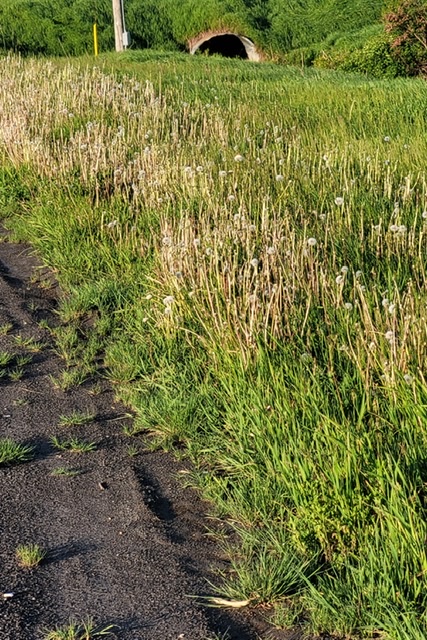Weed spraying season is a familiar occurrence annually. There are some common misconceptions about weed spraying that probably explain why it is such a topic of controversy.
Weed spraying refers to the spraying of chemicals in ditches to control the spread of noxious weeds. Property owners can opt out of weed spraying by placing “no spray” signs in the desired area.
Many people are likely unaware that the Municipality is obligated under law to perform the annual spraying. The purpose, as set out in Ontario’s Weed Control Act, is to control noxious weeds that have the potential to infest agricultural land and severely hurt crop yields and crop quality. The noxious weed control is therefore done to protect the food supply chain.
“Noxious weeds are much more than an inconvenience,” reads an article published by the Ontario Federation of Agriculture. “Invasive and noxious weeds threaten Ontario’s plants and animals and can be harmful to crops, livestock, humans and our environment natural environment. Ontario’s Weed Control Act facilitates the control of noxious weeds on lands in close proximity to lands used for agricultural or horticultural purposes. Under Ontario’s Weed Control Act, farmers and landowners have a legal obligation to manage noxious weeds species on their properties.”
The Act does not stop at requiring farmers to control noxious weeds. It also sets out rules for local governments, including upper tier municipalities (locally, this is the United Counties of Leeds and Grenville) and lower tier municipalities (locally, the Municipality of North Grenville). “The Act requires single tier or upper tier municipalities to appoint a weed inspector,” reads the OFA article. “Lower tier municipalities are also required to appoint a weed inspector. Lastly, the Minister of Agriculture, Food and Rural Affairs has the authority to appoint a provincial weed inspector. If notified about noxious weeds on lands close to ones used for agricultural or horticultural purposes, the weed inspector can order the weeds destroyed. If weeds are not destroyed within a set time, the municipality can use its staff to destroy the weeds, and add the cost to the property owner’s tax bill.”
The OFA supports spraying activities and expects its members to obey local and provincial spraying regulations since infestations of noxious weeds can significantly limit crop yields. The organization specifically supports the spraying of ditches because of the way that off-farm weeds can make it more difficult to control on-farm weeds if left unmanaged.
Does this make “no spray” signs inherently irresponsible? Not at all. Landowners can have any number of reasons for not wanting spray on their property, such as a having a nearby garden or water well, family members who present with allergies following spraying, or pets who are inclined to play in or eat chemically treated grass. While spraying is certainly not the evil and deadly activity that some people make it out to be, the decision of “spray” vs “no spray” rests on individual households.






